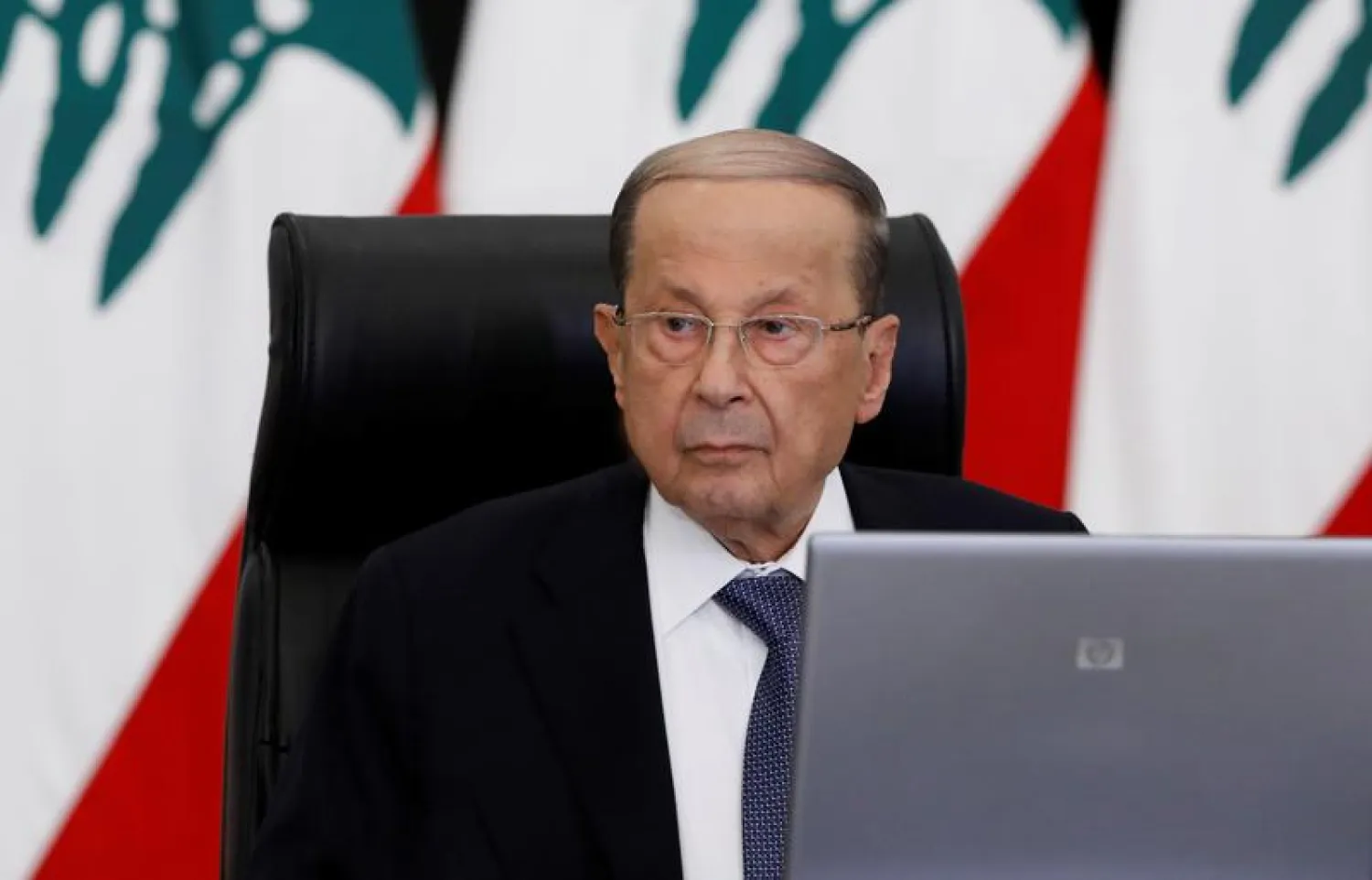President Michel Aoun stepped up on Wednesday the rhetoric against different political parties, including Speaker Nabih Berri, ahead of the binding consultations with lawmakers to name a new prime minister.
Sources told Asharq Al-Awsat that in his televised speech, Aoun implicitly referred to obstacles that would hinder the formation of the new government.
Sources from the opposition said Aoun “has the right to address the Lebanese,” but questioned the timing of the speech, which came on the eve of the consultations that are expected to end with the designation of former Prime Minister Saad Hariri to lead the cabinet.
The sources told the daily that the president did not refer in his speech to the French initiative, launched by President Emmanuel Macron in August, nor to the ongoing negotiations with Israel over the demarcation of the maritime borders.
Aoun “threw the ball into the court of others, including the speaker,” according to the sources.
“The message from the speech is that he lost the battle of designation, and is now betting on the battle of the government formation, which his son-in-law MP Gebran Bassil is hinging on to make a comeback,” they told Asharq Al-Awsat.
Aoun had postponed the binding consultations, which were scheduled last week, citing requests by Christian blocs.
Lebanese Forces MP Wehbi Qatisha said that Hariri’s complex mission would begin after the designation, expecting the Shiite duo – Amal Movement and Hezbollah – and the Progressive Socialist Party (PSP) to impose conditions on him although the French initiative clearly calls for a government of experts.
Qatisha said he expected that the Free Patriotic Movement’s parliamentary bloc would actively participate in the formation process, despite its opposition to Hariri’s designation.
Commenting on Aoun’s speech, resigned MP Nadim Gemayel said on Twitter: “The words of President Michel Aoun today confirm his failure and inability to manage the country and the crisis, as he said so explicitly.”









